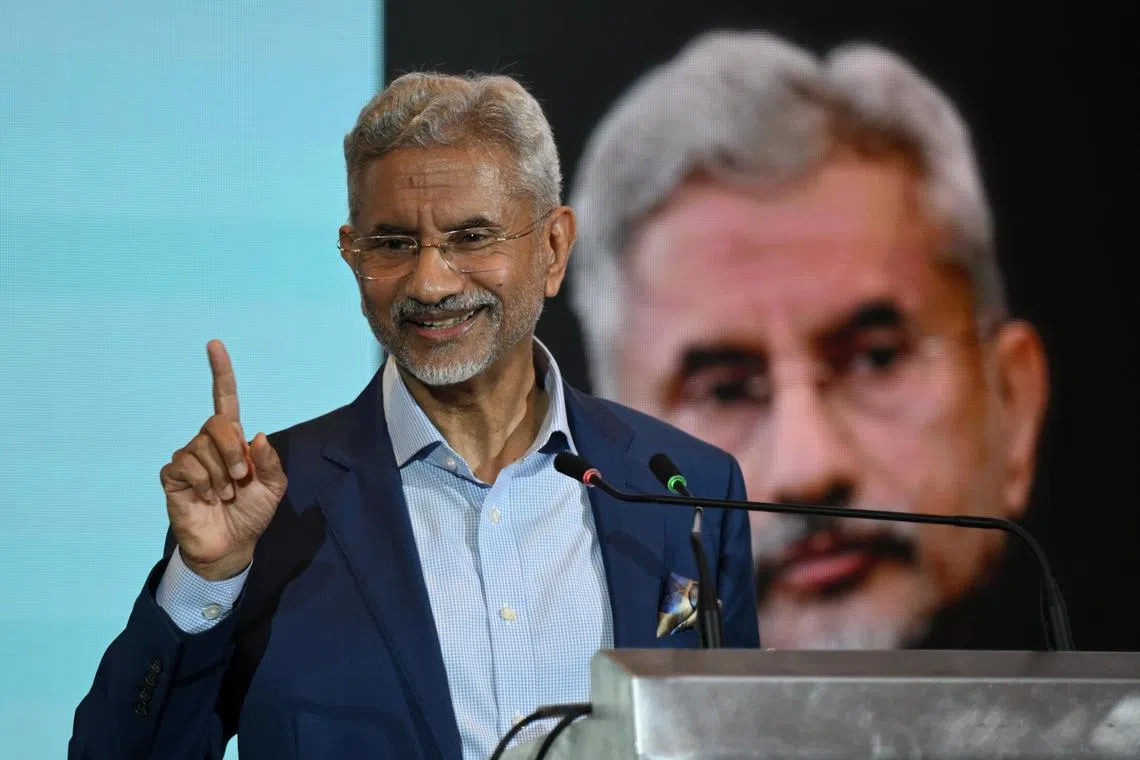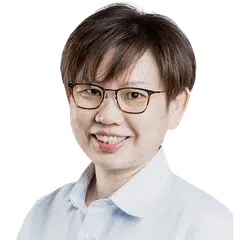India, China need to find ways to return stability to disputed border: Foreign minister Jaishankar
Sign up now: Get insights on Asia's fast-moving developments

India’s External Affairs Minister S. Jaishankar made clear that the territorial spat will not be resolved in a hurry.
ST PHOTO: SHINTARO TAY
Follow topic:
SINGAPORE – As a long-running border dispute between India and China flares up again with heated rhetoric on both sides in recent days, India’s External Affairs Minister, Dr S. Jaishankar, says that returning stability on that front is needed before the relationship between the two Asian giants can move forward.
In his first public remarks since the latest verbal sparring over Arunachal Pradesh – which China claims as Zangnan as part of South Tibet – following Prime Minister Narendra Modi’s inauguration of a tunnel there earlier in March, Dr Jaishankar says India is “today trying to find a way”.
“And it’s not easy. I have myself invested, you know, a great deal of effort with my counterpart (in China). And at the military commanders level, at the diplomatic level, we’ve had 20-plus rounds of talks.”
Speaking at a lecture organised by the National University of Singapore’s Institute of South Asian Studies (ISAS) here on March 23, he makes clear that the territorial spat will not be resolved in a hurry.
But a necessary initial step is to find a way to return to the “peace and tranquillity” on the border that had existed for 45 years, after India’s loss of four soldiers in 1975. The two countries have entered into various bilateral agreements between 1993 and 2013 to prevent the situation from escalating.
That peace was disrupted in 2020 when at least 20 Indian and four Chinese soldiers were killed
In the latest twist to the saga, the United States waded into the quarrel, saying on March 20 that it recognises the disputed Arunachal Pradesh as Indian territory. China reacted the next day, saying that Washington is serving its “selfish geopolitical interests”.
A media report earlier in March said India had set aside 10,000 more soldiers to guard its border with China. Asked about this at the ISAS dialogue by Straits Times associate editor Ravi Velloor, Dr Jaishankar would only quip: “I think no sensible government confirms troop moments, least of all to someone from a foreign newspaper.”
India’s Foreign Minister is in Singapore on a three-day visit starting on March 23. He will meet Prime Minister Lee Hsien Loong and Deputy Prime Minister Lawrence Wong, among others.
A key focus of the dialogue – attended by some 300 diplomats, academics and members of the Indian diaspora – was China, and Dr Jaishankar noted that until there is stability on the disputed border, “it is illogical to expect the equilibrium building, the relationship building, doing more things to move forward, because it will naturally engender enormous distrust”.
With China and India emerging simultaneously as rising powers, he said: “The challenge, for me, is how do we find the sustainable equilibrium?”
Both countries should build on the areas that they have found agreement on, he added.
To him, the skirmish in 2020 was China disturbing the equilibrium by not keeping to its “part of the bargain”, instead of “solidifying the foundation for an equilibrium”. “From 1975 to 2020, nobody got killed on that. So, for 45 years, it worked. We have to ask ourselves today, why is it not working?”
“The issue is really not about miscommunication. I assure you their English is wonderful, and our Chinese is even better!” he added, to chuckles.
China has said that the incident happened only because India violated the bilateral consensus and made unilateral provocations in Galwan Valley, which China claims in entirety amid contestation by India. India says the Galwan Valley is in Ladakh.
Dr Jaishankar also elaborated on his thesis of how India is “non-West” but not “anti-West”, which he had written about in his newly published book Why Bharat Matters. In this way, he said, New Delhi has expanded the room for manoeuvre on great powers relations, including with the US and Europe.
He described India’s relationship with the US and Russia under its “multi-vector” policy and said it is possible to deal with each one on a “non-exclusive” basis because of India’s non-alliance culture.
On another country which India shares borders with, Dr Jaishankar said Pakistan will be dealt with more firmly and will not be given “a free pass”.
The two nuclear-armed neighbours have fought two wars and a limited conflict over Kashmir.
“How do you deal with a neighbour who does not hide the fact that they use terrorism as an instrument of statecraft?
“India will not skirt this problem any more. We are not going to say, ‘Well, that happened. And you know, let’s continue our dialogue, because that’s very important.’ I think we have a problem. We must be honest enough to face up to that problem, however difficult it is,” he said.


